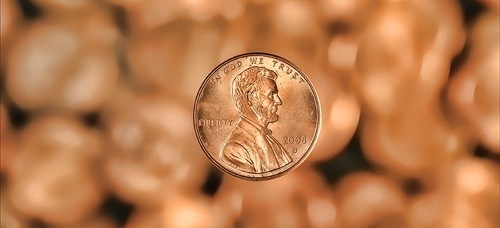
No matter how many times people like Clay Shirky or Mike Masnick try to pop the bubble of faith around micropayments as a cure for what ails the newspaper industry (or even the media industry as a whole), another believer emerges to argue that a secure and extensible micropayment system is a big part of the answer. The latest to make an impassioned plea is Jeff Reifman, the co-founder of NewsCloud, a “community-driven news aggregator” funded by the Knight Foundation.
In a recent blog post, Reifman outlines why he believes that micropayments can solve the newspaper industry’s problems. His post is a response to one by Steve Outing at Editor & Publisher, which carried the somewhat argumentative title “Your News Content Is Worth Zero To Digital Consumers,” and argued that charging people for news isn’t going to work unless that news is highly targeted to a specific niche. (Google CEO Eric Schmidt made a similar point recently about why The Wall Street Journal has been able to charge, and Paul Graham echoes that point as well.)
If you want to go back through some of the reams of text that have been written about micropayments for news, Clay’s essay from 2003 is a good place to start — especially since it lists the half-dozen or so attempts to create such a system that failed miserably. (Are you listening, Steve Brill?) There’s also a good roundup at the Freakonomics blog from awhile back that is well worth reading.
Reifman defends his approach by pointing to several successful models of payment for services, including iTunes, text messaging, TiVo, and broadband Internet. The first thing that leaped out at me is that three of those four things — iTunes, text messaging and broadband Internet — are a result of something approaching a monopoly (or an oligopoly or cartel, in the case of text messaging and broadband Internet). Apple can charge for music because it controls access to the songs from all the major record labels. Phone companies and cable companies can charge usurious rates for text messaging and Internet because they have little or no real competition. How does any of that apply to newspapers?
In his comments at the Freakonomics blog, Clay Shirky says the “fantasy that small payments will save publishers…is really a fantasy that monopoly pricing power can be re-established over users.” I think there’s a lot of truth to that. Newspapers have spent the past 100 years or so with a stranglehold on both the tools of mass publishing and the means of distribution, and much of what has happened to them over the past decade is a result of them losing both of those things. The unfortunate reality is that even the best micropayment system is not going to recreate that system of artificial scarcity and control — and some have argued that micropayments could even be bad for journalism as a whole, putting pressure on individual stories to be revenue generators.
Does that mean newspapers can’t make any money? Not at all. I think Mike Masnick has done a great job of pointing out how a media business can make money even if it gives content away for free — his company Techdirt does it, plenty of musicians and artists do it. And they do it by using the free content to promote the aspects of their business that have *real* scarcity rather than artificial scarcity. For music, that includes things like personal access, convenience, higher quality and so on. What does it mean for journalism? It could mean charging for different platforms, for early alerts, for special “members-only” access to certain premium or value-added content. But I’m pretty sure of one thing: It doesn’t mean charging people fractions of a cent to read a news story, no matter how sophisticated the process.
Photo by Kevin Eddy used under a Creative Commons license.